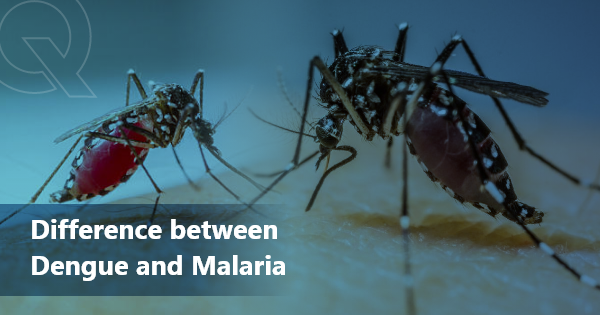Dengue fever, often referred to as “breakbone fever” due to the intense joint and muscle pain it causes, is a viral infection caused by the dengue virus, which belongs to the Flaviviridae family. It is primarily transmitted through the bite of infected female Aedes mosquitoes, with Aedes and Aedes being the main culprits. These mosquitoes are prevalent in tropical and subtropical regions, including parts of Asia, the Americas, Africa, and the Pacific.
The virus has four distinct serotypes (DENV-1, DENV-2, DENV-3, and DENV-4), and infection with one serotype does not provide immunity against the others. In fact, subsequent infections with different serotypes can increase the risk of severe dengue, which is a major concern in regions where the disease is endemic.
Contents
Severity Spectrum: From Mild to Severe Dengue
Dengue fever manifests across a spectrum of severity. The mild form of the disease often presents with flu-like symptoms, including high fever, severe headache, pain behind the eyes, joint and muscle pain, rash, and mild bleeding, such as nosebleeds and gum bleeding. In most cases, these symptoms can be managed at home with appropriate care.
However, the severe form of dengue, known as dengue hemorrhagic fever (DHF) or dengue shock syndrome (DSS), can be life-threatening. It is characterised by high fever, severe abdominal pain, persistent vomiting, heavy bleeding, and a drop in blood pressure. Early recognition of severe dengue symptoms is crucial, as hospitalisation and intensive medical intervention are often required.
Tips to take care of dengue patient at home
While some cases can become severe and require hospitalisation, many individuals with dengue can be cared for at home with the right support and attention. When a loved one falls ill with dengue, providing effective care becomes paramount. In this guide, we’ll walk you through essential tips for taking care of a dengue patient at home. These guidelines are aimed at ensuring the well-being and recovery of the patient, while also reducing the risk of further spread of the disease.
1. Ensure Proper Rest
One of the most critical aspects of dengue recovery is rest. Encourage the patient to rest as much as possible. Avoid strenuous activities, and make sure they get adequate sleep to help their body recover.
2. Maintain Hydration
Dengue can cause severe dehydration, so it’s crucial to keep the patient well-hydrated. Offer plenty of fluids, including water, oral rehydration solutions, and fresh fruit juices. Small, frequent sips are more effective than consuming large quantities at once.
3. Monitor Temperature
Regularly check the patient’s temperature. If their fever spikes, you can use over-the-counter fever-reducing medications like acetaminophen. However, avoid using aspirin or ibuprofen, as they can increase the risk of bleeding.
4. Nutritious Diet
Encourage the patient to eat a balanced, nutritious diet. Focus on foods that are easy to digest, such as rice, boiled vegetables, and light soups. These foods can help replenish nutrients and aid in recovery.
5. Prevent Mosquito Bites
Since dengue is transmitted by mosquitoes, it’s essential to prevent further mosquito bites. Use mosquito nets or screens on windows and doors, apply mosquito repellent, and wear long-sleeved clothing to minimise exposure.
6. Watch for Warning Signs
Be vigilant for any warning signs of severe dengue, such as severe abdominal pain, persistent vomiting, bleeding, or difficulty breathing. If any of these symptoms occur, seek immediate medical attention.
7. Maintain a Clean Environment
Eliminate potential mosquito breeding sites around your home by emptying containers with stagnant water. This helps reduce the mosquito population and lowers the risk of further infections.
8. Emotional Support
Recovery from dengue can be physically and emotionally challenging. Offer emotional support to the patient, and keep them mentally engaged with books, movies, or light activities as they start feeling better.
Conclusion
Caring for a dengue patient at home requires attention to detail, but with proper care, most patients can recover successfully. Ensure they get adequate rest, stay hydrated, and receive a nutritious diet. Watch for warning signs and seek medical assistance if necessary. By following these guidelines, you can contribute to a quicker and smoother recovery for your loved one.
Frequently asked Questions
Q1: Which food is good for dengue patients?
A1: Diet plays a crucial role in the recovery of a dengue patient. Here’s a list of foods that are generally considered suitable for dengue patients:
1. Fluids: Hydration is key. Water, oral rehydration solutions (ORS), and fresh coconut water help maintain fluid balance and prevent dehydration.
2. Fruits: Soft, non-acidic fruits like bananas, papayas, and watermelon are rich in vitamins and can be easier on the stomach.
3. Vegetables: Steamed or boiled vegetables, such as pumpkin, carrots, and bottle gourd, are easy to digest and provide essential nutrients.
4. Rice and Plain Grains: Rice, plain porridge, and boiled rice-based dishes are gentle on the digestive system and provide energy.
5. Protein Sources: Lean proteins like well-cooked chicken or tofu can aid in muscle recovery.
6. Herbal Teas: Chamomile and ginger teas may help soothe nausea and digestive discomfort.
7. Soups: Light, clear soups, like chicken or vegetable broth, can be comforting and nutritious.
8. Yoghourt: Plain yoghourt with probiotics may support gut health.
It’s important to remember that each person’s tolerance for food during dengue may vary. Listen to the patient’s preferences and consult with a healthcare professional for personalised dietary recommendations. Avoid spicy, oily, or overly seasoned foods that may exacerbate nausea or digestive issues.
Q2: What is the home remedy for dengue patients?
A2: Home remedies can help alleviate the symptoms of dengue and support a patient’s recovery, but they should not be considered a substitute for medical treatment. Here are some home remedies to consider:
1. Stay Hydrated: Encourage the patient to drink plenty of fluids, such as water, oral rehydration solutions (ORS), and fresh fruit juices, to prevent dehydration.
2. Papaya Leaf Extract: Some people believe that papaya leaf extract can help increase platelet count, but it should be used under medical supervision, as its effectiveness is not scientifically proven.
3. Herbal Teas: Chamomile or ginger tea can help soothe nausea and improve digestion.
4. Rest: Ensure the patient gets adequate rest and sleep to support their recovery.
5. Fever-Reducing Medication: Use over-the-counter fever-reducing medications like acetaminophen (paracetamol) to manage fever and reduce discomfort. Avoid aspirin and ibuprofen, as they can increase the risk of bleeding.
6. Proper Nutrition: Provide a balanced diet with easily digestible foods like rice, plain porridge, boiled vegetables, and fruits. This supports the patient’s nutritional needs during recovery.
7. Mosquito Protection: Ensure the patient is protected from further mosquito bites by using mosquito nets, screens on windows and doors, and mosquito repellent.
Remember that dengue can progress to severe forms, and it’s essential to seek medical advice and care, especially if the patient’s condition worsens or if they show signs of severe dengue. These home remedies are meant to complement medical treatment and alleviate symptoms.





